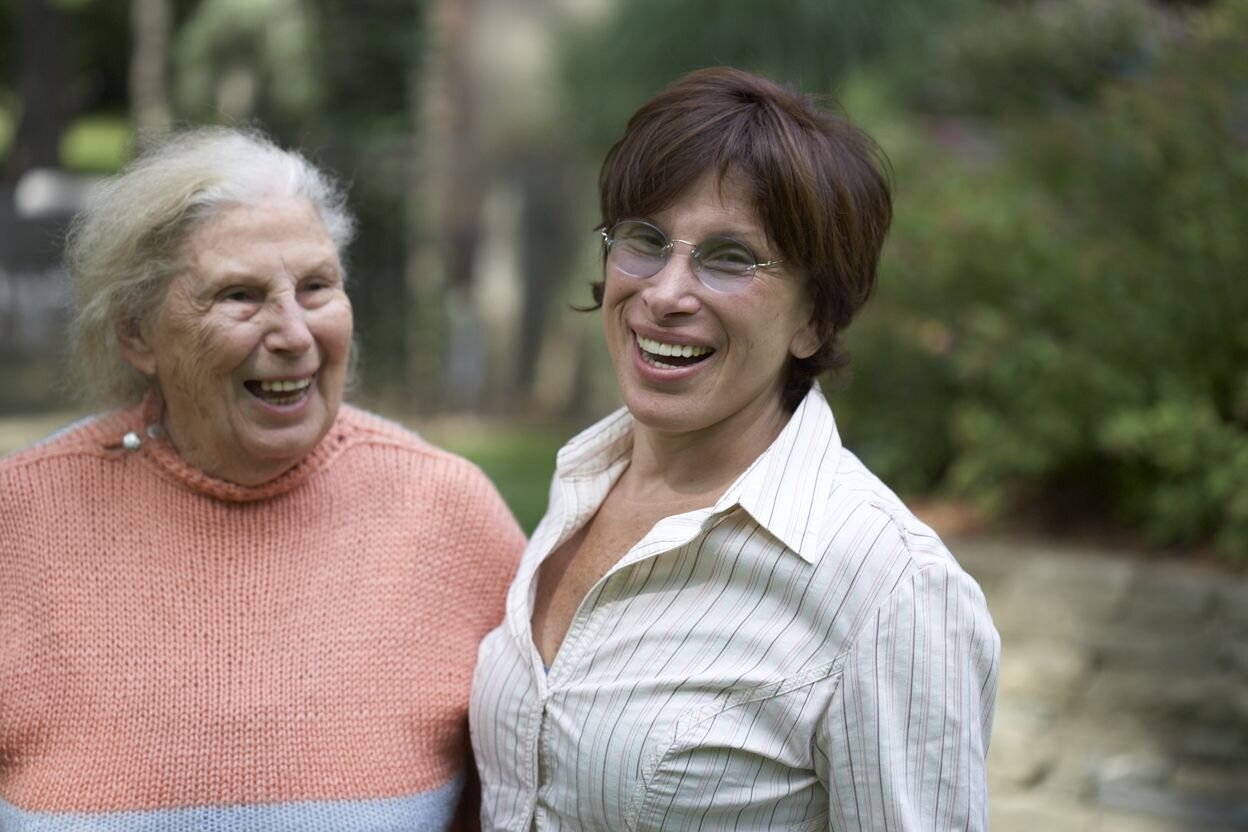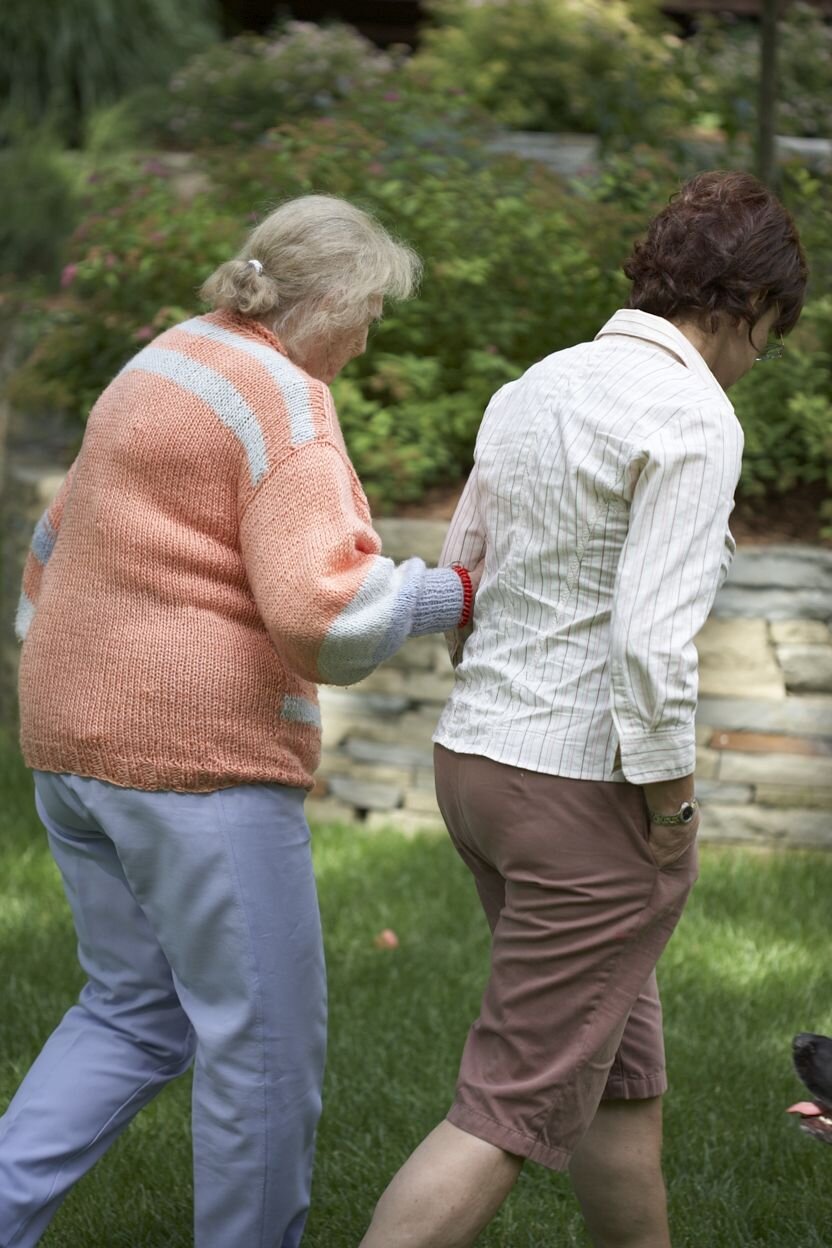Aging parent – feelings revived
When we care for an elderly parent, we deal with not only the logistics of care, but we also face a multitude of feelings. There is no single way to deal with the experience and certainly no right or wrong. It is a journey that we each make in our own way. This is one story from my own experience.
My mother died in 2016. She had lived in an Assisted Living facility near my home for many years, and I was able to visit her daily. They were among the best years of our relationship and for that, I will always be grateful. It was not, however, without stress marked by a cascade of feelings.
After many years of maintaining her independence and cognitive abilities, her dementia began to progress. And with that, came deterioration in functioning. Every change or transition became difficult for her. Too many people at an event would make her overwhelmed and confused. Gradually, participation in family events evaporated. Her behavior became more unpredictable and erratic. Eventually, I made the difficult decision to move her to a reminiscence unit where closer supervision was provided.
Soon after that move, the situation changed for the worse. She became aggressive. She refused to stay in her room, screaming that she wanted to leave. She started wandering with many more “episodes”. She would bang on the doors that separated her wing from the “independent” side until her arms were black and blue, swollen from her elbows to her fingertips. It was disturbing. I was anxious each day, no longer knowing what to expect.
Sometimes the staff would find her in her old room, unaware that it belonged to someone else; on other days I would find her cradling a doll as if it were real. One afternoon, we found her naked in another person’s room getting ready for bed. She did not recognize things that she had loved and held onto for 70 years. She was having trouble finding words and expressing her thoughts. She did not recognize herself or anyone else in pictures, often confusing me with her dead sister. There were fewer lucid moments, and more moments of confusion and agitation. Past memories were muddy and present ones were fleeting. Yet, even as her dementia slowly crept over her, she always knew who I was. I took solace in that.
During my youth, my mom was a formidable, even chilling presence. Negative energy swirled with rages that spared no one. She was hardworking, demanding and creative. She taught herself to play the piano, paint, knit, sew, and crochet. She made her own clothing as well as mine (including my wedding dress, coat and veil). She loved fixing things, from rewiring electrical appliances, plumbing, to an old, broken chandelier. Sadly for her family, cooking and gardening were attacked with the same brute force. In short, she was exhausting.
My relationship with her had been complicated. Often it was strained and unhappy. She would write me long, angry letters detailing the innumerable ways in which I had been mean and miserable to her. We tried living together after my dad passed away, but that was a nightmare, resolved after she moved to Florida. When I would go to visit her, I would fill my Poland spring bottle with vodka, but even that could not mute the experience. She was disappointed or furious with me most of the time.
When she turned 85, the signs were there. Living alone became difficult for her; she was no longer flying back and forth to visit, nor could I easily fly to check on her. She no longer answered the phone. There were frequent anxious phone calls to the police to check on her. There were more emergency room visits and the falls. Long distance was no longer an option. With significant anxiety, I brought her to the Assisted Living near my home.
She was set in her ways and not easy to deal with. I firmly believed that, with persistence, mixed with cajoling and unconditional support, I could change the relationship. It worked. Eventually, our relationship improved; she became a different person. She was unconditional in her love: never angry or critical, always happy to see me. For the rest of her life, we did not have a single fight.
So, it was startling to me when on one particular afternoon, the unhappy, unreasonable persona of my youth reappeared. Triggered by the move to the reminiscence unit, I found her agitated and raging, threatening to call the police, refusing to take her medications. She was spitting at the staff. She thought someone had abducted my 26-year-old son. Neither the staff nor I could calm her. I took over, believing that she would respond to me and calm down. But she had become her younger self—and I was her child again. She screamed and scolded me, as she had done so many times. She demanded that I sit in a corner and say nothing. I was her enemy again. She refused to talk to me or look at me or even let me touch her. Everyone was a challenge to her authority. Her expressions hardened and I prepared for the worst. Suddenly she sat back in her wheelchair, lost in fear, anger and sadness.
A watershed of memories burst inside of me. For that visceral instant, I was transported back to my youth.
The next day, she remembered nothing.
My story may have been unique to me, but aging is universal. We will all watch our parents go through that process and sometimes it can be painful, but sometimes, it can be beautiful. In my case, I learned that the best way to move forward is to embrace every moment of it, no matter how difficult.
photos by Matthew Septimus

